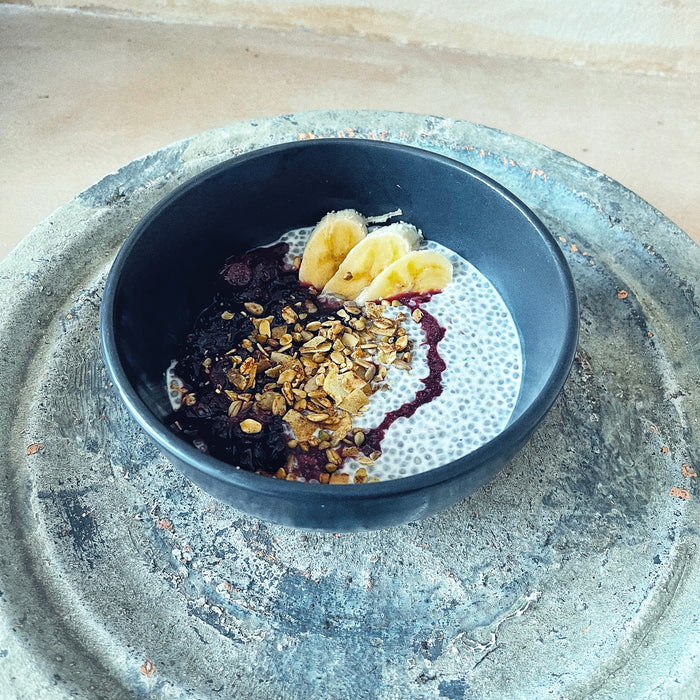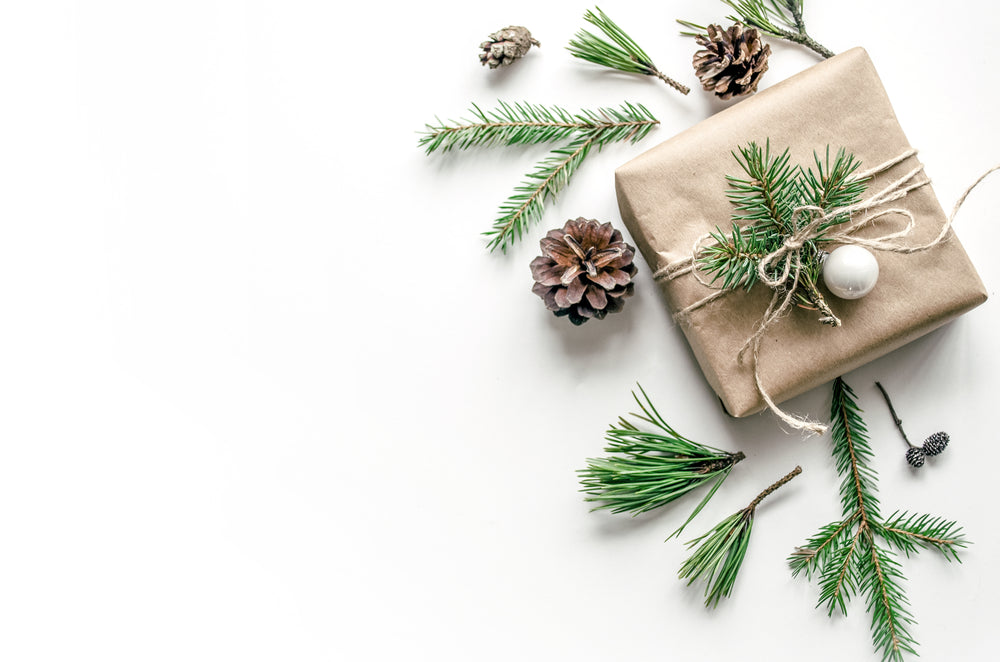Coconut & Kaffir Lime Chia Pudding


It’s the holiday season and oftentimes the festivities fuel consumption. But they don’t have to. Below are some ideas on how you can reduce your impact and ecological footprint this time around and forever more.
Some of the biggest contributors to waste I’ve observed at this time of year are:
Below I offer some eco-friendly alternatives to the above and ways you can reduce your impact if you still choose to buy these items.
It’s challenging to buy anything without some sort of excessive packaging. Whether it’s plastic, paper, cardboard, Styrofoam etc. it is likely to end up as waste. To eliminate or reduce your packaging waste, try to make your gifts or buy them from a local maker/craftsperson and request that no packaging be used at all. This is a wonderful way to engage with your local community, support your local economy and put your money back into the hands of small businesses. Alternatively you may consider a non-material gift this year. Perhaps a shared experience with the ones you love or a donation to a local organisation committed to positive action.
If you do buy gifts with packaging, consider how that packaging can be reused and/or recycled. Un-waxed paper and cardboard can be used in the garden or the compost, some hard plastics can be recycled, however soft plastics will end up in landfill.
There are infinite alternatives to wrapping available it just takes a little imagination (and fun!). I like to use the pages of old newspapers, magazines and calendars. I also like to use fabric, tote bags, recycled (cleaned!) sheets, towels, pillowcases and tea towels. Big leafy foliage from the garden is another beautiful gift-wrap. Eco-alternatives to pretty coloured plastic string are jute or hemp twine, raffia, and fibrous grasses or vines from the garden. Hand-made cards are the most fun, they can be made plastic free and recycled or composted with ease. Recycled cardboard or paper is perfect!
If you like traditional wrapping paper and cards, try to find those that are recycled and plastic-free and dispose of your wrapping responsibly, in the compost is best.
An eco-nightmare! Christmas decorations are notoriously plastic, including tinsel, ornaments, lights and figurines. Instead of purchasing plastic decorations seek out either glass or wood alternatives. You may even like to make your own using found materials. There isn’t really a solution for disposing of your plastic decorations, the only option is to reuse them year after year, and if you purchased them this is your responsibility. Otherwise they will inevitably end up in landfill.
A beautifully adorned table doesn’t have to cost the earth. Instead of buying paper napkins with Christmas prints, buy or make fabric napkins that can be washed and used every year. Fabric paint is a great option for adding some cheer to your fabric. Instead of Christmas crackers or bon-bons, most of which contain plastic toys, make your own with recycled toilet rolls and come up with your own personalised jokes, quotes, affirmations or gratitude’s to go inside. And instead of table ornaments, try adorning your table with foliage from the garden that can be returned to the garden when the meal is finished.
One of the biggest contributors to Christmas waste is food. Meals turn into feasts but our bellies are the same size. This food doesn’t have to be wasted; it can be transformed into many other meals to share. Remember storage is key for your leftovers to last.
There are countless ways to feed yourself from leftovers, use the recipe books you’ve been meaning to read all year or look online for some inspiration. If you can’t finish all of your leftovers remember to compost them!
This is the perfect time of year to take responsibility of your eco-footprint and celebrate in harmony and with consideration of the earth. How will you lead by example in your family this year?
Special thanks to our local farming writer Lydia for this article @cosmos_patch